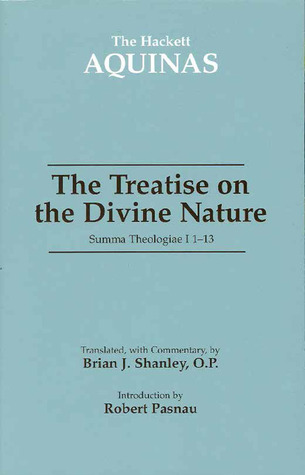- Bible
- Read the Bible
- Bible Versions
- Verse of the Day
- Reading Plans
- Verses by Topic
- Books of the Bible
- Bible Images
- Study
- Commentaries
- Concordances
- Dictionaries
- Encyclopedias
- Sermons
- Bible Atlas & Maps
- BP Wiki
- Devotionals
- Today's Devotionals
- Light of the World
- All Devotionals
- Inspirational Quotes
- More
- Picture Quotes
- Videos
- Inspirational
- Bible Study
- What The Bible Says
- Bible Q&As
- Daily Bread
- Bible by Genre
- Bible Stories
- Random Bible Verse
- Community
- Store
The Treatise on the Divine Nature: Summa Theologiae I 1-13
by Thomas Aquinas
This series offers central philosophical treatises of Aquinas in new, state-of-the-art translations distinguished by their accuracy and use of clear and nontechnical modern vocabulary. Annotation and commentary accessible to undergraduates make the series an ideal vehicle for the study of Aquinas by readers approaching him from a variety of backgrounds and interests.
BUY NOW
Paperback, 392 pages
Published March 15th 2006 by Hackett Publishing Company, Inc. (first published January 1st 1982)
tags: philosophy
© 2025 Bibleportal.com All rights reserved.

Thomas Aquinas was an immensely influential philosopher and theologian in the tradition of scholasticism, known as Doctor Angelicus and Doctor Communis.
He was the foremost classical proponent of natural theology, and the father of the Thomistic school of philosophy and theology. His influence on Western thought is considerable, and much of modern philosophy was conceived as a reaction against, or as an agreement with, his ideas, particularly in the areas of ethics, natural law and political theory.
The philosophy of Aquinas has exerted enormous influence on subsequent Christian theology, especially that of the Roman Catholic Church, extending to Western philosophy in general, where he stands as a vehicle and modifier of Aristotelianism, which he fused with the thought of Augustine.
... Show more